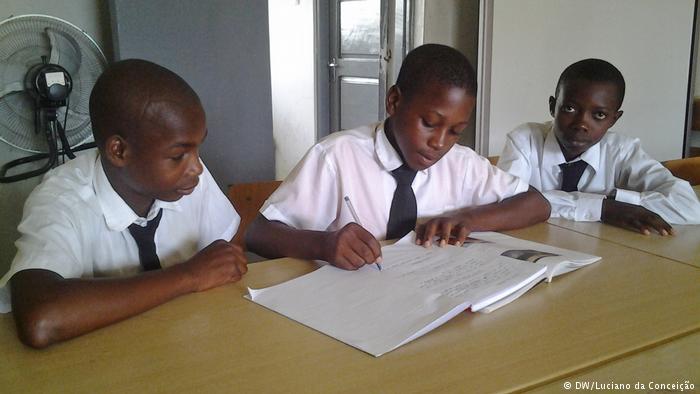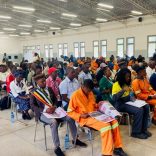Mozambique: Japan donation to finance education, health projects
National languages are the key to achievement in Mozambican schools

DW (File photo)
The Mozambican executive wants to use the 23 national languages, along with Portuguese and sign language, to improve teaching. Academic Armindo Ngunga believes that Mozambique must “liberate itself” from the Portuguese language.
Most Mozambican children in rural areas only begin to learn Portuguese in schools, which contributes to school failure. Meanwhile, teaching using national languages is a success, because students participate actively in classes and become more motivated.
“We urgently need to get rid of [the Portuguese language]. I am not here advocating that we change the ‘chip’, I am advocating that we acquire another chip so as to be stronger and more capable than those who only have one ‘ chip ‘, says academic and researcher Armindo Ngunga.

Combating school failure
National and Portuguese languages have been taught since 1993 in rural areas of the provinces of Gaza in the south and Tete in the centre. And the results are positive.
The idea now is to double the number of students in this process, according to the Minister of Education and Human Development, Conceição Sortane. “It should not be difficult” to conclude “that school failure for 89.2 percent of Mozambicans who enter the first class is already predetermined” if their mother language continues to be excluded from the classroom.
According to Minister Conceita Sortane, it is now necessary to train the teachers. “Our teacher training institutes have been undertaking the training of teachers who can speak or give their lesson in the local language,” she says.
Deputies “are not guilty of sleeping”
The teacher and researcher Feliciano Chimbutane evaluates the use of mother tongue positively, because students are more at ease in the classroom. In addition, ignoring local languages brings negative repercussions, as in high-level debates in parliament emphasising the academic.
“Many of those deputies who sleep in parliament are not at fault for being asleep – it’s because the language used is not the one that should be used for their contribution,” he says. “It is interesting that, for example, it is the Macua [language spoken in Nampula] that we try to use to mobilise that individual to give the vote, but from the time we have the vote, it is the Portuguese which dominates Macua.”
Another teacher, Armindo Ngunga, confirms that in rural areas where bilingualism is being implemented there have been improvements in subject assimilation. Teachers say rescuing the identity of Mozambicans is urgent.













Leave a Reply
Be the First to Comment!
You must be logged in to post a comment.
You must be logged in to post a comment.